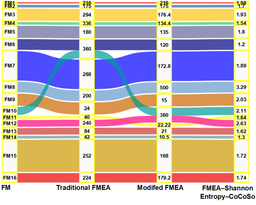Bringing the magic back to academia – time to create new paradigms
Published in Neuroscience

Academia has experienced a significant increase in resignation rates over the past few years. Postdocs, PhD students, and PIs are opting for alternative career paths, which is leading to difficulty in finding suitable candidates to fill research positions1. Some are moving to the private sector, while others are leaving research altogether for more stable and balanced careers in fields such as science illustration, communication, grant offices, and editing.
While this trend reflects society's recognition of skilled and highly qualified workers, this ‘Exitemia’ at such high rate comes at a big cost to research, training, and knowledge. In the near future, research labs may face a significant shortage of human resources if they intend to fill positions primarily with PhD students and postdocs. This problem is not easily or quickly solvable, as PhD training requires significant time and resources.
I was shocked when a very well-known and successful PI from a different Institute told me (proudly so) that he never took any of his team members to conferences and that this is not a priority to him (!). I asked back whether he does not consider those activities as a crucial part of their career development or training. His short answer: not really. Which is sad and shocking and it reflects only a fraction of the major issue.
I see many people reminisce about a time where science was like a mission and our work seen as somewhat divine. In my opinion, this is the wrong view. The paradigm has changed and it won’t never come back. Also impacted by the pandemic, but already brooding before, professionals want different things now. Are they wrong? Probably not.
When I started as a PhD student we had so many more opportunities ahead of us, available funding and possibilities of a permanent job. The uncertainty at that time was indeed stimulating and dynamic, yet was somewhat contained and less risky. This new uncertainty is different. Our students watch how overworked we are, the struggle for funding and the lack of long-term stability. They see how seriously we take our jobs, and the great contrast from how serious is taken by the society and the precarity associated to it.
Research institutes all over the world are struggling against the chronic underfunding, of researchers always running after resources without much time to carefully think about science. Having to compete for the best paper, the best journals, to get one of the few positions available, to rethink their career strategy over and over. And in some labs, like the example above, a complete lack of investment or regard to individual career paths. We turned into a corporate environment but lacking the proper structure, rules or formal training. Students and postdocs are pushed around within a still authoritarian and PI-centric lab culture, where rules are shady, expectations and objectives are not clearly set, in an intentional strategy to put pressure on people. Hence the also increasing harassment complaints and fraud in retracted papers.
So, shouldn’t we be glad that this is changing? That we are finally taking the matter seriously? The best performances, especially in intellectually demanding jobs, do not happen in toxic, stressful and rushed environments (as neurobiology clearly show us). New and creative ideas and opportunity to test them, stems from highly dynamic, ambitious and vibrant communities, for sure. But safe ones. Motivated teams work better and more efficiently. Ambition is different from mental illness, fraud or harassment.
It is time for research organizations to rethink their structures and create a more professional environment that promotes safe, dynamic, and ambitious teams. A new paradigm, fewer PhD and postdocs per lab and more stable administrative and technical career positions to support discovery and development. With proper career development plans, more scrutiny of PIs mentoring and training skills, and less totalitarian.
Can we get the past back? Thankfully not, because the future is ahead of us. With much better prospects, if only we are smart enough. We can have all that magic back, let’s just start to rethink the model and create new opportunities. ASAP.
1https://www.nature.com/articles/d41586-022-01512-6
Luísa V. Lopes*
*Neuroscientist, Group leader@Instituto de Medicina Molecular Lobo Antunes, Lisbon, Portugal.
Follow the Topic
Your space to connect: The Psychedelics Hub
A new Communities’ space to connect, collaborate, and explore research on Psychotherapy, Clinical Psychology, and Neuroscience!
Continue reading announcement


Please sign in or register for FREE
If you are a registered user on Research Communities by Springer Nature, please sign in